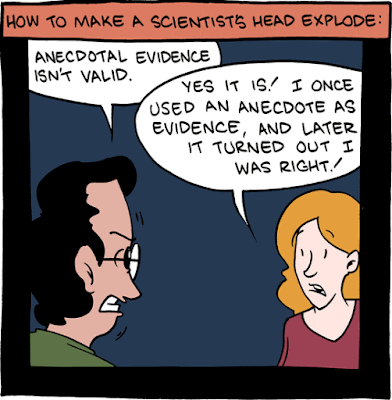So naturally our healthcare teams are doing everything they can to try to prevent patients from getting to that stage. And that means both trying medication regimens typically used for other purposes and exploring novel therapies.
 |
| Source: SMBC |
 |
| Source: NIH.gov |
I know what you're thinking. HOW CAN WE WAIT 10 YEARS FOR A TREATMENT?!? Quarantine's been less than a month and it already feels like the world's gone mad...
Try not to freak out, take a deep breath and consider this... It probably won't take 10 years to find something effective at combating COVID-19 for a couple of reasons. First and foremost of which is that traditional protocols tend to be broken during an epidemic. We saw this with the frantic and heroic efforts to find an effective Ebola vaccine after the 2014 outbreak. In just about a year, 12 clinical trials from phase 1 to phase 3 were completed. The vaccine was distributed for compassionate use during the 2018 outbreak and the FDA gave their final approval in December 2019. At present, research is already underway to develop a SARS-coV2 vaccine without the typical animal testing phase - at least half a dozen candidates in fact. (For more information about vaccine efforts, click here, here, here, here, here and here.)
 |
| Source: The Economist |
Second, there are already drugs in the pipeline so to speak. With the emergence of SARS-coV, MERS-coV, and Ebola as real global threats, efforts to find drugs that affect RNA virus replication have been underway for sometime. One such drug that was discovered post 2014 Ebola outbreak is remdesivir. This intravenous drug works by inhibiting the enzyme necessary to replicate virus RNA. Remdesivir showed lackluster results in Ebola trials compared to other candidates so it was dropped. However, subsequent research suggested that it could be effective against coronaviruses. Clinical trials are already underway and results are forthcoming. (For more information about remdesivir, check here, here, here, here and here.)
And finally - if not the most talked about strategy - is the fact that drugs currently approved for other illnesses are being evaluated for effectiveness in treating COVID-19. The practice of "off label" prescribing is not that unusual in medicine it turns out, though often (about 73% of the time) with little to no scientific evidence to support that use.
 |
| Source: Stanford University, 2006 |
 |
| Source: Chemical & Engineering News |
So what's the take-away from all this? Please don't get suckered by anyone claiming a wonder drug is right around the corner or overselling anecdotes (President Trump and Dr. Oz - I'm looking at you). But also know that a lot of smart, dedicated folks are working their asses off right now to find as many safe preventative and therapeutic treatments as they can. Maybe check out some of their Twitter feeds to stay up to date: Kizzmekia Corbett, Timothy Sheahan, Angela Rasmussen, Amesh Adjala, Tom Inglesby to name just a few. Until next time...
Let's be careful out there.

No comments:
Post a Comment